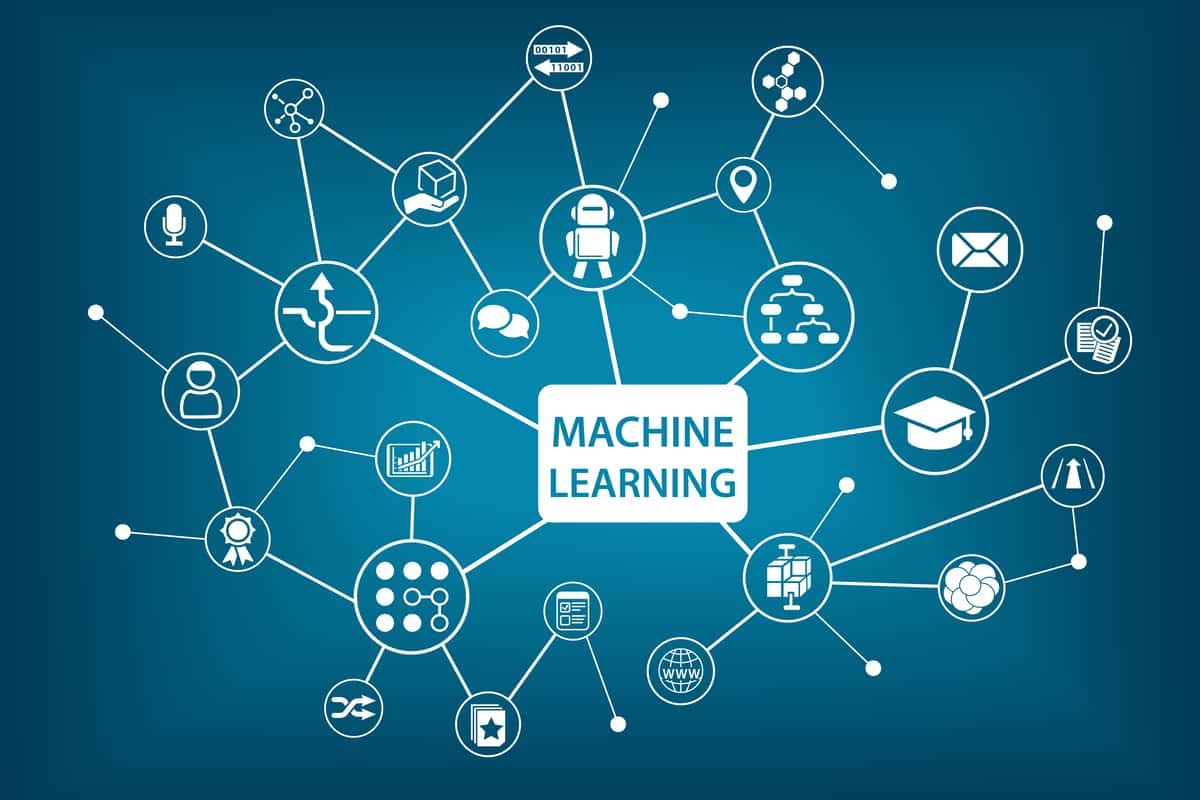Artificial Intelligence (AI) has transformed the way we interact with technology, and OpenAI's ChatGPT has been at the forefront of this revolution. However, as impressive as ChatGPT is, it may not meet everyone's unique requirements.
From affordability to specialized features, there are many reasons to explore ChatGPT alternatives in 2025.
This comprehensive guide will introduce you to the top options available, along with their pros and cons so that you can make an informed decision.
Why Consider ChatGPT Alternatives?
ChatGPT is a leading AI model, but no tool is perfect for every use case. Here are some key reasons why users might seek alternatives:
- Budget Constraints: Company plans for ChatGPT premium services exist only for a select market segment unable to afford this service.
- Specific Features: Better alternatives exist with features adjusted to create more ethically acceptable uses across various sectors.
- Customization Needs: Businesses need chat technology that works well within their existing work processes and systems.
PG Program in AI & Machine Learning
Master AI with hands-on projects, expert mentorship, and a prestigious certificate from UT Austin and Great Lakes Executive Learning.
Criteria for Choosing ChatGPT Alternatives
When selecting the right AI tool, consider these essential factors to match your needs:
- Ease of Use: Does the AI make it easy to use for everyone?
- Affordability: Are there free or competitively priced plans available?
- Use Cases: Can it handle your specific requirements, such as content creation, coding, or research?
- Reliability: The system supplies exact answers that remain steady and responds promptly.
- Integration: Is it compatible with other tools and platforms you already use?
Top ChatGPT Alternatives in 2025
1. OpenAI GPT-4 Playground
OpenAI GPT-4 is a playground developed by OpenAI that allows users to explore and test the capabilities of GPT-4.
The tool has features like adjustable settings (temperature, tokens) to control how creative or detailed the answers are.
You can use it for various tasks such as writing, summarizing, or translating text, all through an easy-to-use interface.
Best For: Developers and researchers.
Pros:
- Highly customizable for specific use cases.
- Access to the latest OpenAI models.
- Excellent for advanced technical and research tasks.
Cons:
- Requires technical knowledge to use effectively.
- Not beginner-friendly.
Suggested: Free ChatGPT Course for Beginners
2. Google Gemini
Google Gemini is an AI model developed by Google DeepMind. It is designed to handle various tasks, including language processing, image recognition, and complex problem-solving.
It is a Multimodal AI that allows users to interact through both text and images.
Gemini aims to offer improved context understanding, accuracy, and efficient responses, enhancing user experiences in various applications.
Best For: Productivity and search-related tasks.
Pros:
- Perfect for productivity and search-related tasks.
- Free to use with Google account integration.
- Reliable and fast for factual queries.
Cons:
- Less creative than ChatGPT.
- Focused primarily on information retrieval.
Suggested: Free Gemini Course for Beginners
3. Anthropic's Claude
Claude is an AI language model developed by Anthropic. It can generate human-like text, answer questions, summarize information, and assist with various tasks.
It emphasizes the ethical use of AI, prioritizing user safety, alignment, and transparency.
Best For: Businesses with sensitive or ethical needs.
Pros:
- Emphasizes ethical AI outputs.
- Balanced and safe conversational abilities.
- Good for industries with sensitive requirements.
Cons:
- The system works only in certain regions.
- The platform continues to gain new features.
Suggested: Free Introduction to Claude Course
4. Jasper AI
Jasper AI is a content powerhouse for marketers, bloggers, and businesses. It generates high-quality, SEO-optimized content, including blog posts, marketing copy, and ad campaigns. Its extensive template library and intuitive editor make it an indispensable tool for digital marketing teams.
Best For: Content creation and marketing.
Pros:
- Comprehensive templates for SEO-focused content.
- Ideal for copywriting, blogs, and marketing materials.
- Tailored features for professionals.
Cons:
- Premium pricing may deter small teams.
- It is not as versatile for non-content-related tasks.
5. Microsoft Azure OpenAI
Microsoft Azure OpenAI provides access to powerful AI models, like GPT and Codex, through cloud services.
It enables businesses to integrate advanced language models into their applications, enhancing productivity with capabilities such as natural language understanding, automated content generation, and coding assistance.
The platform also prioritizes security, scalability, and compliance, offering enterprise-level features.
Best For: Enterprise-level scalability and security.
Pros:
- High scalability, suitable for enterprise-level use.
- Strong security and compliance features.
- Integrates well with Azure's ecosystem.
Cons:
- You need an Azure subscription to use this system.
- Built for business organizations.
Suggested: Generative AI Training Course with Microsoft Azure OpenAI
6. DeepMind Sparrow
DeepMind Sparrow is an AI chatbot designed to be more helpful, safe, and aligned with human values. Unlike other models, Sparrow has built-in safety features to avoid harmful or misleading content.
Its key features include providing factual, trustworthy answers, refusing to engage in harmful topics, and giving clear sources for its information. Sparrow aims to be transparent, ethical, and aligned with user intentions in conversations.
Best For: Academics and students.
Pros:
- Strong ethical framework for AI responses.
- Delivers precise and reliable answers.
- Suited for research and sensitive discussions.
Cons:
- Limited public access as of now.
- Not as creative or versatile as some competitors.
7. Writesonic
Writesonic is a budget-friendly AI designed for content creators, marketers, and small businesses. With templates for ads, blog posts, and even YouTube scripts, it’s a versatile tool for generating quick and effective copy.
Best For: Small businesses and freelancers.
Pros:
- Budget-friendly pricing with a free plan.
- User-friendly templates for ads, blogs, and more.
- Ideal for short-form content creation.
Cons:
- Limited in handling advanced or technical tasks.
- Not as effective for long-form content.
8. Perplexity AI
Perplexity AI is a search engine powered by advanced AI technology, offering users precise and relevant answers to their queries. It uses language models to generate direct responses instead of simply providing a list of links.
It is good for students, professionals, and researchers who need reliable information and citations for their work.
Best For: Academics and students.
Pros:
- Highly reliable for factual and well-researched answers.
- Easy-to-use interface for academic purposes.
- Focused on accuracy.
Cons:
- Lacks creative functionalities.
- Best suited for research-oriented tasks.
9. Copy.ai
Copy.ai simplifies creating marketing and sales copy, making it ideal for small teams and entrepreneurs. It’s a fast, affordable tool for generating high-quality short-form content like product descriptions and ad copy.
Best For: Entrepreneurs and small teams.
Pros:
- Users can try the basic plan without cost.
- Simple interface with effective tools for marketers.
- Fast and efficient for short-form copywriting.
Cons:
- Limited for long-form or technical content.
- Not as robust as ChatGPT for general usage.
Free AI Tools Similar to ChatGPT
For those on a tight budget, here are three free tools that stand out:
- HuggingChat: An open-source AI tool that provides flexible and adaptable conversational capabilities.
- Character.ai: A platform for creating customized, AI-driven characters for interactive conversations.
- Poe by Quora: A user-friendly AI tool integrating various models for a diverse experience.
Post Graduate Program in Generative AI for Business Applications
Discover the power of generative AI in real-world business scenarios. Learn to lead with data-driven insights and strategy.
Which ChatGPT Alternative Should You Choose?
Choosing the right alternative depends on your specific requirements:
- For Businesses: Jasper AI and Microsoft Azure OpenAI are excellent for scalability and professional content.
- For Research: Perplexity AI and DeepMind Sparrow are reliable for academic and factual outputs.
- For Budget-Friendly Options: Writesonic, Copy.ai, and HuggingChat are great for individuals and small businesses.
To Learn AI development from scratch and in detail, consider looking at Great Learning’s PG Program in AI & Machine Learning in collaboration with UT Austin.
Frequently Asked Questions
1. Which ChatGPT alternative is best for content writing?
Jasper AI and Writesonic are excellent for creating high-quality content.
2. Can I use Google Gemini for creative tasks?
While Gemini is great for productivity, it may not excel in highly creative tasks like storytelling.
3. What's the most affordable ChatGPT alternative?
Writesonic offers a free plan, and Copy.ai has budget-friendly options for small-scale users.
4. Are ChatGPT alternatives safe for sensitive data?
Most enterprise-focused tools like Microsoft Azure OpenAI and DeepMind Sparrow emphasize data security. Always review their privacy policies before use.
Suggested Read:






